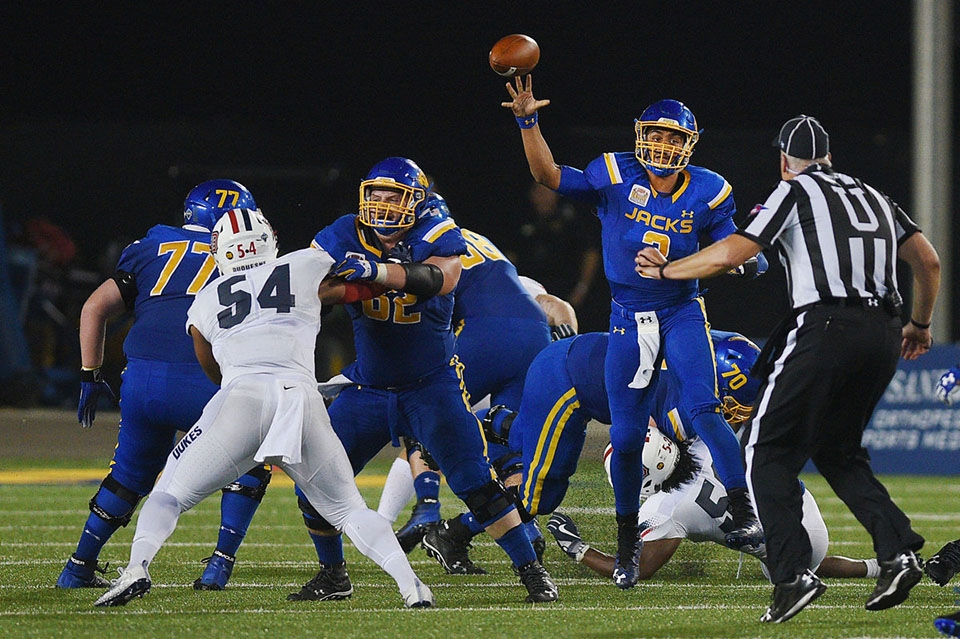10/04/2018
By Kailey Love | Managing Editor
On Sept. 27, millions of people across the world were glued to phone screens and television sets, watching history unfold as a woman told her story about a boy who sexually assaulted her when she was 15 years old. In the era of #MeToo, these narratives are not an uncommon phenomenon.
But this day was different.
At stake, a Supreme Court seat, which will alter the judicial course of our country for decades to come. The nominee, U.S. District Court Judge Brett Kavanaugh, was almost certain to be confirmed to take the place of Justice Anthony Kennedy, who announced his intent to retire this past summer. Almost certain … until it was reported that a woman had come forward and detailed an allegation of sexual assault against Kavanaugh that had occured when they were teenagers.
But I don’t want to talk about Kavanaugh. I’m tired of talking about Kavanaugh.
I want to talk about Christine Blasey Ford, the woman in question.
Ford, a psychologist from California and professor at Palo Alto University, first reported her allegations against Kavanaugh to her representative, Congresswoman Anna Eshoo, when Kavanaugh’s name made the shortlist to be a SCOTUS nominee. She hoped that Rep. Eshoo would pass the information along to the White House to deter the decision to nominate him. When that did not work, she informed California Senator Dianne Feinstein, the ranking Democrat on the Senate Judiciary Committee, in a letter.
It should be noted in all of this that when she first reported her allegations, she wanted to remain anonymous. She didn’t want her name to be public, she didn’t want the international attention. She just wanted someone to know what Kavanaugh had done to her. But after immense public pressure, she felt that testifying wasn’t an option, as she discussed in the hearing.
In her opening statement, Ford said, “I am here today not because I want to be. I am terrified.”
She didn’t want any of this to happen.
Ford detailed to the committee that she and her family were forced to move out of their home, shuffled in between secure locations. She has received death threats and been harassed since her name and allegation became public. Her email was hacked. Journalists have shown up at her home and in her classroom, pressing her for comment. She had to relive the most traumatic moment of her life in the public eye, while watching TV pundits and Twitter trolls viciously pick apart her testimony in real-time.
I have had many conversations with people in the past week that are of the opinion that we shouldn’t rush judgment on Kavanaugh because you cannot believe every accuser all the time, and that some people come forward with allegations because they want something out of it — be it fame and recognition, money, what have you. And I understand that just because a woman accuses a man of sexual assault, it doesn’t automatically make it true. There have been cases where the #MeToo movement has been utilized for self-interested purposes. However, I believe that is clearly not the case here.
The life-altering choice to come forward has had nothing but negative repercussions for Ford as illustrated in her testimony. And yet, she decided to take the stand because she felt that it was her civic duty to do so. In sacrificing her reputation and the normalcy of her life as she knew it to speak out, she lends a voice to the lives of millions of women across the country who would be affected by Kavanaugh’s rulings on things like healthcare or Roe vs. Wade.
The decision to speak out about her allegations was not self-serving. It was heroic.
Ford’s bravery was inspirational to women across the country with their own stories just like hers, including two other women who have come forward with their own allegations against Kavanaugh. The day after her testimony, the National Sex Abuse Telephone Hotline run by the Rape, Abuse & Incest National Network (RAINN) reported that they had more phone traffic than ever before in their 24-year history, with more than 3,000 calls. Women also called into C-SPAN all day during the hearing, sharing their own stories of sexual assault.
And yet, many members of the GOP refuse to vote against Kavanaugh’s confirmation because they don’t want to “ruin his life” based on something that happened when he was a teenager. God forbid we acknowledge the psychological damage that Ford has endured for decades due to his actions as a teenager, of course.
One of the main arguments that Republican lawmakers are using to discredit Ford’s allegations is how long it took her to report the sexual assault, and how little she remembered about what happened that night other than the assault (the date it occurred, the address of the house, how she got home, etc). This completely flies in the face of countless studies that outline why it can take so long for victims to report.
According to the National Sexual Violence Research Center, 63 percent of sexual assaults go unreported to police, making it the most underreported crime in the country. They also cite that when reported, only 2-10 percent of these claims are false, and that 81 percent of women report short and long-term mental impacts after assault, such as Post Traumatic Stress Disorder (PTSD). A study by the Bureau of Justice Statistics identifies that some of the top reasons victims chose not to report are self blame or guilt, and fear of not being believed.
This week, at a rally in Mississippi, President Trump mocked Ford’s testimony, making jokes about the fact that she could not remember where the assault took place, and how she got there or home, in an attempt to discredit her. Cheers and laughter from the crowd followed his disgraceful attempt at a comedic bit. Trump, sympathizing with Kavanaugh, said “a man’s life is in tatters, a man’s life is shattered … [Democrats] destroy people … these are really evil people.”
Imagine having to relive a traumatic assault in front of the entire nation after keeping it a secret for years for fear that you wouldn’t be believed, just to have the President of the United States make that experience into a joke — especially after Ford said that the strongest memory she has of the assault was Kavanaugh’s laughter at her expense.
But please, ask me again why she didn’t come forward earlier!
As a woman, this hearing and its aftermath has been painful to watch, and it is incredibly personal to so many people. Almost every woman has either had something like this happen to her, or knows somebody who has. What Ford sacrificed should not be belittled or mocked, but recognized as the courageous act that it was.
I’d like to echo the sentiments of Sen. Kamala Harris in her statement to Ford during the hearing: “I want to thank you, I want to thank you for your courage, and I want to tell you I believe you … I believe history will show that you are a true profile in courage at this moment in time in the history of our country.”




